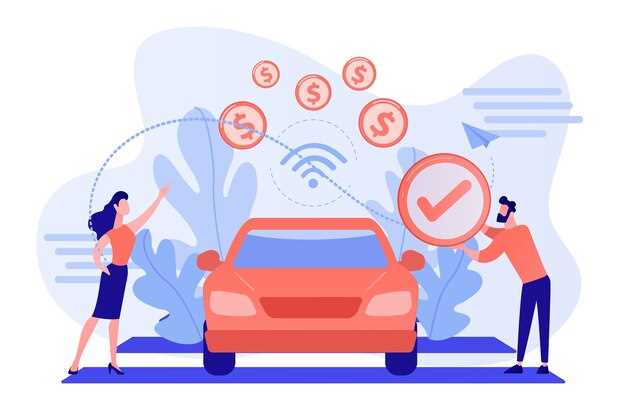
The evolution of the automotive industry is witnessing a significant shift with the advent of subscription services. These innovative models are transforming traditional car ownership into a more flexible and accessible experience. Consumers are now navigating a landscape where car access is no longer solely defined by purchasing or leasing. Instead, subscription services offer a compelling alternative that caters to the desires and lifestyles of modern drivers.
As urbanization continues to rise, the need for adaptable mobility solutions becomes increasingly evident. Subscription services provide an opportunity for individuals to enjoy the benefits of car usage without the long-term commitment and financial burden of ownership. This approach allows users to select vehicles tailored to their needs, whether it’s a compact car for city driving or a larger SUV for family outings.
Moreover, the convenience of subscription services transcends mere vehicle access; they often come bundled with additional perks such as maintenance, insurance, and roadside assistance. This all-inclusive model enhances the overall experience, making it more appealing to those who prioritize flexibility and practicality in their daily lives. As a result, car subscription services are not just reshaping how we view car ownership, but are also paving the way for a more dynamic and sustainable approach to personal transportation.
The Financial Benefits of Car Subscriptions Compared to Traditional Ownership

Car subscriptions offer a modern alternative to traditional ownership, providing significant financial advantages. One of the primary benefits is the elimination of upfront costs typically associated with purchasing a vehicle. Buyers often face hefty down payments, while subscription services usually require only a monthly fee, allowing users to access a car without large initial investments.
Monthly subscription payments cover a wide range of expenses, including insurance, maintenance, and roadside assistance. This all-inclusive model simplifies budgeting, as consumers no longer need to estimate additional costs. In contrast, traditional ownership often leads to unforeseen expenditures related to repairs or insurance hikes that can strain a person’s finances.
Car subscriptions also mitigate depreciation concerns. Vehicles lose value rapidly after purchase, which can be financially burdensome for owners. Subscribing to a car allows users to enjoy the latest models without the worry of asset depreciation, as the subscription company manages vehicle turnover.
Furthermore, subscriptions provide flexibility. Users can swap vehicles based on their needs, such as choosing a compact car for city driving or a larger SUV for a road trip. This adaptability can lead to savings by optimizing vehicle use for specific occasions, unlike traditional ownership where a single car must meet all transportation requirements.
In summary, car subscriptions present an economically viable solution for many consumers. By reducing upfront costs, consolidating expenses, alleviating depreciation concerns, and offering flexibility, subscriptions prove to be a compelling alternative to traditional car ownership.
Understanding the Flexibility of Vehicle Access Through Subscription Models
The advent of subscription models in the automotive industry has revolutionized the way consumers access vehicles. Unlike traditional car ownership, which entails long-term financial commitment, subscription services allow users to select vehicles based on their current needs without worrying about depreciation or maintenance costs. This model offers unprecedented flexibility, allowing individuals to change their car choices frequently, accommodating varying lifestyles and preferences.
One of the significant advantages of vehicle subscription is the ability to tailor the car experience to specific requirements. For instance, a user may opt for a compact car for daily commuting and switch to an SUV for a weekend getaway. This adaptability means that subscription services cater to urban dwellers who may require different vehicles throughout the year, highlighting the convenience inherent in this approach.
Furthermore, subscription models often include comprehensive services such as insurance, maintenance, and roadside assistance, simplifying the vehicle access process. This all-inclusive package allows users to focus on enjoying their vehicles without the hassle of managing separate agreements and costs associated with ownership. As a result, consumers can experience a wide range of vehicles with minimal commitment, promoting a more dynamic car ownership experience.
Overall, vehicle subscriptions cater to modern needs, providing a level of access and flexibility that traditional ownership cannot match. This shift is particularly appealing to younger generations who prioritize experiences over possessions, enabling them to enjoy various cars while maintaining financial freedom.
Evaluating the Environmental Impact of Car Subscription Services

Car subscription services are gaining traction as a flexible alternative to traditional vehicle ownership. This model allows users to access a car without the long-term commitment of purchasing or leasing. However, assessing the environmental implications of such services is crucial in understanding their overall sustainability.
One of the primary advantages of car subscription services is their potential to reduce overall vehicle ownership rates. By promoting shared access to vehicles, these services can contribute to lower emissions and decreased traffic congestion. With fewer cars on the road, the demand for parking spaces diminishes, leading to more green spaces in urban areas.
Additionally, car subscription models often provide access to newer, more fuel-efficient vehicles. Many of these programs prioritize offering electric and hybrid options, further reducing the carbon footprint associated with personal transportation. When users select eco-friendly vehicles through subscription services, they contribute to a significant reduction in greenhouse gas emissions compared to older, less efficient cars.
Nevertheless, the environmental impact of car subscription services is not entirely positive. An increase in the overall number of vehicles, even if they are used more efficiently, can lead to higher emissions if the vehicles are frequently driven over short distances. Furthermore, the manufacturing process of new vehicles, including electric ones, still has an associated environmental cost, particularly concerning resource extraction and waste generation.
In conclusion, while car subscription services present opportunities to enhance sustainability in vehicle use, careful evaluation of their overall environmental impact is essential. Balancing the benefits of flexible access to vehicles with the potential downsides of increased car usage will be crucial in determining their role in a more sustainable transportation future.



